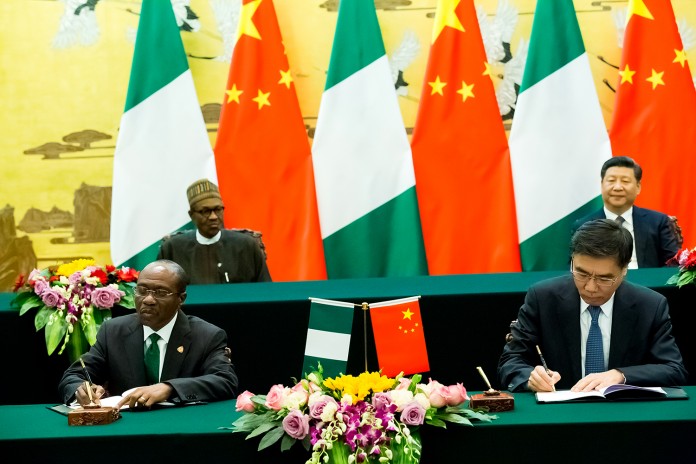The People’s Republic of China has invested $22 billion in some projects in Nigeria, with another $23 billion on-going investment according to its Consul-General, Chao Xiaoliang.
Xiaoliang while speaking to newsmen at the Chinese consulate in Lagos, explained that the investments were made in furtherance of China’s economic policy tagged the ‘Belt and Road Initiative’.
The consul-general stated that while a slowdown in the global economy generally affected the volume of trade between Nigeria and China in 2016, “Chinese investment in Nigeria grew by 27 percent.”
Xiaoliang added: “Accompanying the investment, Chinese technology, management and experienced talents also flood into Nigeria, which greatly boosts the diversification and development of Nigerian economy.”
The diplomat expressed his confidence in Nigeria’s ability to become a major manufacturing hub and that China was willing to help the country achieve the goal.
“China and Nigeria need to find a platform and mechanism to effectively conduct our cooperation, and this is the very role the Belt and Road Initiative plays,” he said.
According to the Sun, the consul-general assured of China’s readiness to partner with Nigeria in her drive to diversify the country’s economy from oil.
The claims of the consul-general may bring some relief to observers who have expressed concerns about the Nigerian economy and the challenge of attracting foreign investment.
Mr Xiaoliang’s statement that with increased Chinese investment in Nigeria, “Chinese technology, management and experienced talents” would also “flood into Nigeria” may however be a source of concern.
Chinese companies operating in Nigeria have been generally known to bring in skilled and not-so-skilled workers from China to work on projects in the country, often leaving minor roles to Nigerians.
The arrangement leaves many qualified Nigerian youths without jobs and results in both capital flight and technical knowledge gap leading to improper or total absence of maintenance of the completed projects.

